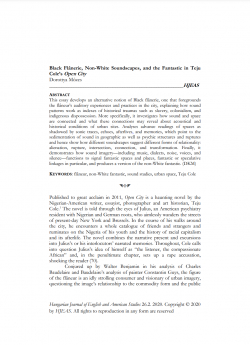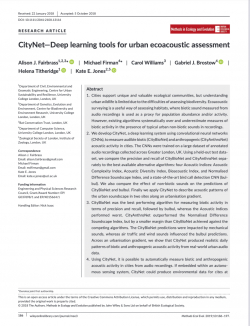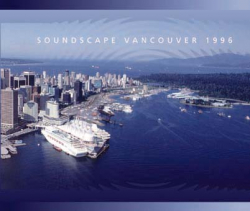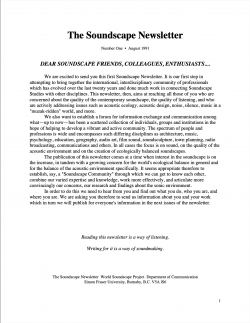Black Flânerie, Non-White Soundscapes, and the Fantastic in Teju Cole's Open City

Type
Journal
Authors
Mózes ( Dorottya Mózes )
Category
Article
[ Browse Items ]
Publication Year
2020
Publisher
URL
[ private ]
Volume
26 (2)
Pages
273-298, 475-476
Tags
Abstract
This essay develops an alternative notion of Black flânerie, one that foregrounds the flâneur’s auditory experiences and practices in the city, explaining how sound patterns work as indexes of historical traumas such as slavery, colonialism, and indigenous dispossession. More specifically, it investigates how sound and space are connected and what these connections may reveal about acoustical and historical conditions of urban sites. Analyses advance readings of spaces as shadowed by sonic traces, echoes, afterlives, and memories, which point to the sedimentation of sound in geographic as well as psychic structures and ruptures and hence show how different soundscapes suggest different forms of relationality: alienation, rupture, intersection, connection, and transformation. Finally, it demonstrates how sound imagery—including music, dialects, noise, voices, and silence—functions to signal fantastic spaces and places, fantastic or speculative linkages in particular, and produces a version of the non-White fantastic.
Description
https://www.academia.edu/44831349/Black_Fl%C3%A2nerie_Non_White_Soundscapes_and_the_Fantastic_in_Teju_Coles_Open_City
Number of Copies
1
| Library | Accession No | Call No | Copy No | Edition | Location | Availability |
|---|---|---|---|---|---|---|
| Main | 364 | 1 | Yes |



